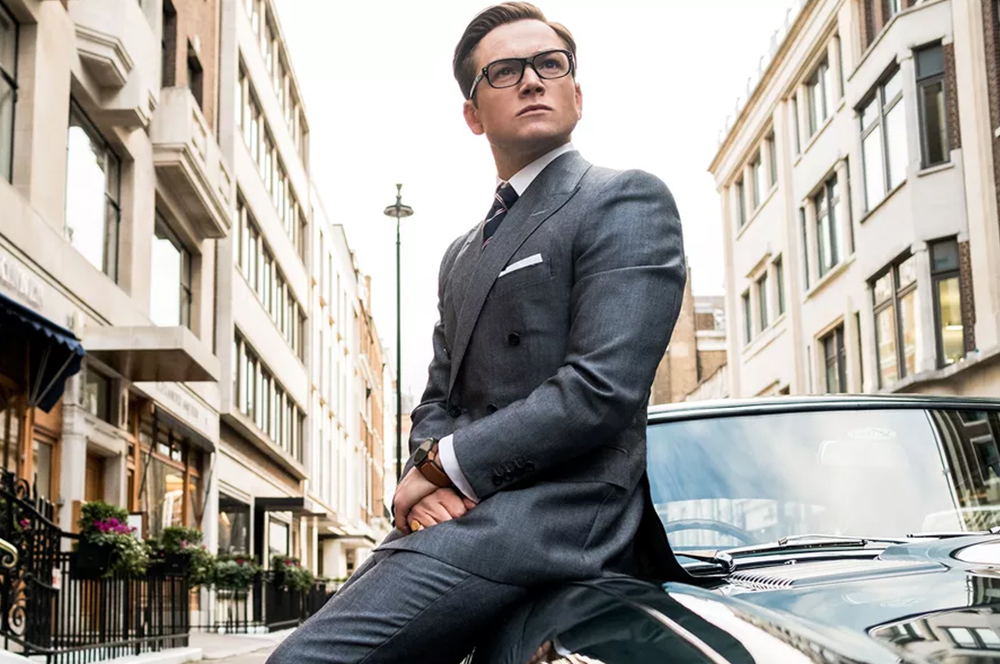Kingsman: The Golden Circle, the equally R-rated sequel opening on September 22nd, is a slightly harder sell. Similar to the trajectory of recent Bond films, it’s a bigger, less focused follow-up without the first film’s originality, or the built-in narrative device of an origin story. But it’s also good at hitting the best notes of The Secret Service, and it’s just as stylish — and as grotesque — as its predecessor.
The first Kingsman film ends with a planet-scale mass murder and the death of most world leaders, but don’t think about that too much — Kingsman certainly doesn’t. Instead, The Golden Circle picks up an indeterminate amount of time later, with Eggsy leading an effortless double life as a Kingsman intelligence-agency operative and working-class slacker. He’s dating the rescued princess Tilde (Swedish actor Hanna Alström), and he’s close friends with fellow agent Roxy (Sophie Louise Cookson of The Huntsman: Winter's War), as well as Kingsman technical genius Merlin (Mark Strong, who also appeared in Vaughn’s Kick-Ass). As soon as this setup is established, it’s literally blown to pieces, sending Eggsy and Merlin to Kentucky in search of an American counterpart to the Kingsmen.
The Golden Circle is still a spy comedy, but it’s less self-consciously parodic than The Secret Service. Working with a larger budget, Vaughn and co-writer Jane Goldman build their own enjoyably cartoonish world, including a secret headquarters in a towering distillery and a 1950s-style small-town Main Street hidden among Cambodian ruins. Eggsy’s new nemesis is the unsubtly named Poppy (Julianne Moore), a saccharine, nostalgia-obsessed sociopath with a monopoly on the world drug trade. His new ally is Statesman: a crew of spies/distillers with codenames like “Tequila,” “Champagne,” and “Ginger Ale.”
The only really compelling character in The Golden Circle, though, is Eggsy’s mentor Harry Hart (Colin Firth), who was murdered onscreen in The Secret Service, but resuscitated by the Statesmen. (His return is an early twist, but since Firth is featured on The Golden Circle’s posters, it’s not much of a surprise.) Eggsy quickly snaps Hart out of some headshot-induced amnesia, but he’s a shadow of his former super-spy self, forced to reconcile his suave confidence with his mental and physical deterioration. Like most plot points in Kingsman, Hart’s struggle lurches abruptly between being tragic, comic, and altogether discarded. But it draws on relatably human fears — of aging, regretting life choices, and disappointing the people who look up to you.
Meanwhile, The Golden Circle’s larger plot catapults into near-fantasy. Even at its most absurd, The Secret Service was rooted in mundane class conflict, keeping Eggsy tied to his shiftless family and council flat. Its villain was a tech tycoon whose outlandish plan — solving global warming by getting humanity to wipe itself out via mind control — was based on actual anxiety about Silicon Valley monopolies and surveillance.
The Golden Circle grasps at the same real-world relevance on an even shakier foundation. Furious at being denied public recognition as a successful businesswoman, Poppy poisons all her stock with a slow-acting toxin, holding users hostage until America ends its War on Drugs. Unfortunately, the president thinks wiping out junkies is a great idea, even when he finds them among his closest aides. So Eggsy and friends strike out alone to find the antidote, via a seedy plan that hinges on tracking and seducing a cyborg’s girlfriend using Instagram.
This plot has all the elements of a South Park-style paean to faux-neutral nihilism, but it plays out in such a slapdash way that The Golden Circle comes off as more dilettantish than cynical. The social commentary feels drawn from a sharebait infographic — did you know sugar kills more people than heroin? — and the film doesn’t bother reconciling its general disregard for humanity with its wholesome celebration of friendship and teamwork. The War on Drugs is a racial minefield, but not only are all drugs here sold by a white American woman, her main victims are characters’ white and often affluent friends. Depending on your point of view, this either explodes stereotypes about addicts, or sidesteps controversy by pushing people of color to the background.
The Golden Circle is similarly bemused about romance, which makes Eggsy and Tilde’s interactions almost offensively bland and stereotypical. Kingsman’s creators can write passable female characters, although there are precious few women in the series. They just seem baffled by any relationship that’s not forged through gunfights and fisticuffs — because those are Kingsman’s reason for existing, and they’re great.
Like The Secret Service, The Golden Circle specializes in extended sequences of acrobatic chaos that are hyper-gory, yet bloodless. Kingsman’s shock-heavy aesthetic is polarizing, and there’s not much reason to see the film if you don’t like it. But within those moments — especially in the action-heavy first and third acts — it’s pure fun. The Golden Circle is a more loosely plotted movie, but it’s also more carefully and elaborately choreographed. It’s so willing to kill characters that there’s a real sense of danger, although since it’s also cavalier about bringing them back, everything remains within the bounds of very dark comedy. It goes even further than The Secret Service in mixing impossible martial arts with Bondian gadgets and gimmicks, subverting or exaggerating conventional action-movie scenes (including one memorable bit from the first film) just enough to stay familiar, but not entirely predictable.
It’s never clear whether Kingsman: The Golden Circle is supposed to be more than the sum of these fights, or whether it’s just marking time by poking at raw political nerves in between. The filmmakers seem to know it doesn’t matter. Their strength lies in being distinctively fast, loud, and glib — and never letting the audience think too hard about what’s going on. The Golden Circle isn’t strong on brains or heart, but it has no shortage of guts.

